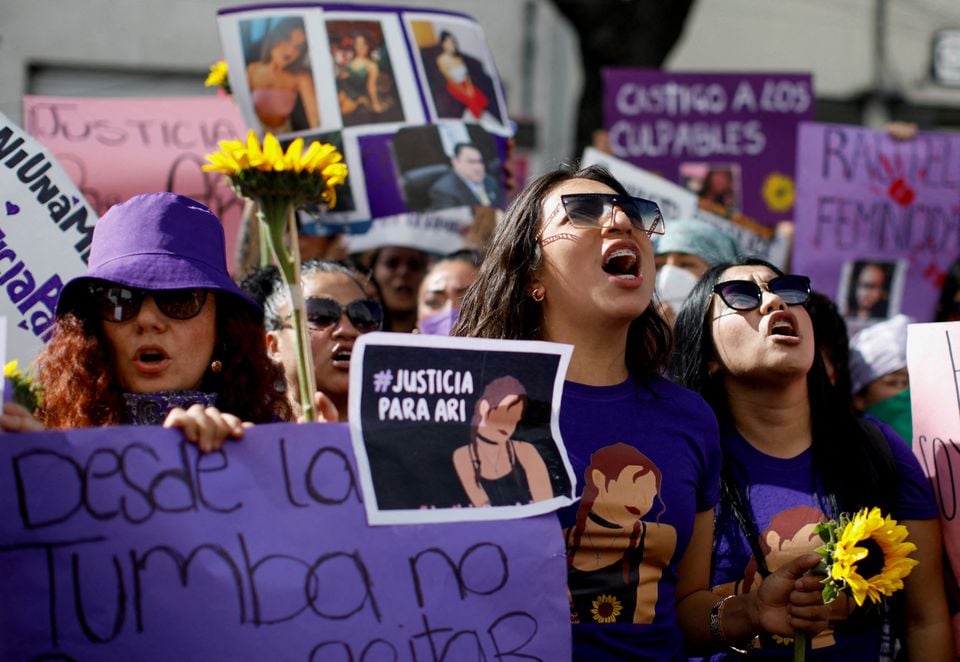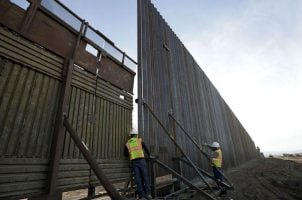Human Trafficking, Gender-Based Violence Threaten Mexico’s Position as World Cup 2026 Host
Posted on: December 28, 2022, 08:46h.
Last updated on: December 28, 2022, 02:50h.
It’s no longer a secret that big-ticket sports events gain increasingly more attention for their sports betting accessibility. This will only continue to increase as the ecosystem grows. uBt the fallout, in certain situations, is unwanted attention. This is likely the case for Mexico as it prepares to host part of the 2026 FIFA World Cup.

The 2022 World Cup in Qatar was big business from every angle – broadcasting, merchandising, sports betting, and more. Over $1.6 billion in wagers just in the US and a record $655 million in France are just two examples of the role sports betting has in the competition.
However, as Qatar proved as a host, there are certain drawbacks as well. Qatar received significant negative publicity for its approach to gender equality and human rights. A FIFA review of Mexico’s participation as a World Cup host in four years has uncovered even more problems.
Mexico’s Dark Side Resurfaces
Despite the fact that the next World Cup is still four years away, preparations for its development are underway. In 2026, there will be three host countries, including Mexico, the US, and Canada.
Because of the logistics of the tournament, FIFA is analyzing the entire environment of the three countries. It has found areas of opportunity for improvement in all of them, making special mention of Mexico.
Through consulting firm Ergon Associates, FIFA has carried out an analysis of the three Mexican venues, which have been rated negatively by the organization. Monterrey, Guadalajara, and Mexico City (CDMX) will be responsible for hosting the matches. But FIFA sees room for improvement before the games begin.
In Monterrey, for example, FIFA highlighted the amount of sex trafficking it detected. It pointed out that the activity has been increasing in the region since 2017, the same year the trio of World Cup hosts was selected.
The city is one of the most important links in international networks of sex trafficking, according to international studies. Some 90% of all the victims of the trade are Mexican.
In Guadalajara, gender violence and the high rate of femicides compromise the safety of visitors. The National Institute of Statistics and Geography reports that violence against women represents a major problem, though the state claims to be developing policies to stop the activity.
Within the CDMX, public safety is one of the most important risks for FIFA. Here, the safety of women, cases of missing persons, and verbal and physical violence in public spaces are serious problems.
Police Looking the Other Way
On the other hand, analysts have cited police violence because of the participation of certain officials in public protests and the way in which they carry out arrests in public. In this sense, there are concerns about the security of journalists, both national and foreign.
This will also need to be addressed before the 2026 World Cup to prevent repeats of what happened in Qatar. Numerous journalists reported losing their rights to cover games and having certain overzealous security personnel seize their equipment.
In addition to the aforementioned, the employment situation is an important topic of interest. In light of the reports – albeit somewhat misleading – of poor working conditions during the construction of Qatar’s venues, there will be increased scrutiny of labor conditions going forward.
FIFA Not Impressing Soccer Fans
The format change for the next World Cup isn’t making FIFA a lot of friends. The organization wants 48 teams in 2026, instead of 32, with none of the hosts having to qualify.
The original idea was to divide the teams into 16 groups of three. FIFA, with the help of the soccer industry, realized that this created an unbalanced competition. Therefore, that structure will likely be discarded in favor of something else. FIFA will make a decision next year regarding alternative formats.
The goal is to give more countries an opportunity to participate and to make the World Cup more inclusive. However, more games also mean more money for broadcasting rights and sports betting. Therefore, the decision to expand isn’t based solely on altruistic intentions.
Related News Articles
FIFA World Cup: Mexico’s Roster Leaves Fans Crying Foul
Deadly Casino Fire in Mexico Criminal Finally Sentenced After 12 Years
Most Popular
VEGAS MYTHS BUSTED: Golden Gate is the Oldest Casino in Vegas
Las Vegas Overstated F1 Race’s Vegas Impact — Report
Most Commented
-
End of the Line for Las Vegas Monorail
— April 5, 2024 — 90 Comments -
Mega Millions Reportedly Mulling Substantial Ticket Price Increase
— April 16, 2024 — 6 Comments -
Long Island Casino Opponents Love New York Licensing Delays
— March 27, 2024 — 5 Comments
















No comments yet